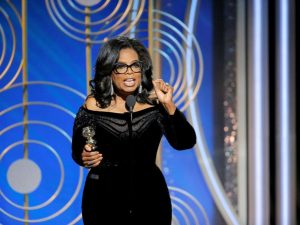By Suzanne Bird
Why do you read our newsletters? Is it for our practical tips for leaders trying to make workplaces more inclusive? For our insights into Equity, Diversity and Inclusion (EDI)? For our guest blogs based on case studies, research or lived experience? Hopefully you enjoy our newsletters for all of these things!
We aim to help you build your EDI know-how by providing interesting insights or useful information. This is why we include a new article each week, linked to a monthly EDI theme or based on a guest blogger’s unique perspective.
In the first six months of 2023, the six most-read blogs in our newsletters covered a wide range of content, from practical EDI advice to more personal reflections on experiencing bias and a hard-hitting report on the career realities faced by women after having a baby. Here’s a summary of those top six newsletters. We hope you enjoy the look back, as we move into the second half of the year.
Hitting the target
In May, Rina posed the question whether EDI targets are a good or a bad thing – and described how to set good targets that are truly effective. Rina suggested that setting targets can be helpful, but only if they are linked to an impactful initiative, providing a useful measure with which to gauge the success of EDI efforts. This is why Rina recommended setting impactful Diversity targets that resonate with the business and are linked to purposeful action.
Following on from this, another highly popular blog from Rina proposed three practical actions that move the needle on EDI and help organisations to hit those targets. It will come as no surprise to you that action number 1 is all about understanding and communicating the business case for EDI, but it’s worth reading on to understand how to tackle this – and the remaining actions! As Rina suggests, addressing EDI like any other business challenge will yield effective change, but only if the business benefits of greater Diversity are understood and EDI is not treated as an add-on to ‘real’ business issues.
Practical pointers
Employee Resource Groups (ERGs), also known as staff networks, can make a real difference to EDI in organisations and provide vital support for people who aren’t in the dominant group in the workplace. Not all ERGs have the impact they set out to achieve, however, and they can only succeed in this if they function well. In April, EDI consultant Inge Woudstra wrote a guest blog offering five valuable tips to help ERGs get off to a good start – with a clear vision and realistic objectives – and to ensure they continue to thrive and have a positive impact.
Lived experiences
In March, guest blogger Jessica Heagren shared some deeply concerning data with us in her blog about Careers After Babies: The Uncomfortable Truth. This was the title of a survey conducted last summer with almost a thousand women, prompted in part by Jess’s own experience of how difficult it is to maintain a senior role whilst being a mother of small children. One snapshot of data is that 85% of the surveyed mothers left the full-time workforce within 3 years of having their first child. Jess contends that we cannot keep allowing women to have to abandon their careers, and offers some suggestions for employers wishing to do better by working parents, including signing up to the Careers After Babies accreditation. This blog contains some truly dispiriting statistics, but it also carries a sense of hope for the future of mothers in the workplace and is well worth a second read.
‘Where are you really from?’ This is a question that EDI Consultant Joyce Osei has often been asked, and in her experience as a Black woman, it is rarely a simple question and is often, as she puts it, ‘fully-loaded’. In this blog, Joyce explores the possible reasons why people feel the need to ask this question, and offers three suggestions to consider for a better approach to learning more about someone without putting your curiosity above the level of comfort of another person.
FAQs
Earlier in the year, Rina dedicated one blog to providing a taste of the most frequently asked questions we receive about our approach to working with an organisation. These questions range from the straightforward ‘How can you help us?’ to more nuanced questions about how we see the difference between consulting and training, and how we can measure a client’s progress in building a more equitable, diverse and inclusive workplace. These questions are naturally focused on the support we offer to organisations, but Rina signs off by saying that our job is to get clients to a place where they don’t need us anymore: ‘However we help you, our aim is to partner with you for as long as you need us and to help you progress successfully without the need for further external intervention.’
I hope you’ve enjoyed this round-up of our most-read blogs so far this year. We value your readership and hope that our blogs inspire and enlighten you. To keep us on the right course, please take a moment to respond to our survey where you can let us know what type of content you prefer.




 Emma Watson addressed the United Nations in 2014, urging men to join the feminist movement; Barak Obama supported the cause when he proclaimed he was a feminist. Many companies recognise “men as allies” as a critical component of their diversity and inclusion efforts. And yet, support by men for gender equality is waning. Particularly in companies.
Emma Watson addressed the United Nations in 2014, urging men to join the feminist movement; Barak Obama supported the cause when he proclaimed he was a feminist. Many companies recognise “men as allies” as a critical component of their diversity and inclusion efforts. And yet, support by men for gender equality is waning. Particularly in companies. The privilege of invisibility
The privilege of invisibility Societal norms and expectations
Societal norms and expectations So how do we engage men?
So how do we engage men?


